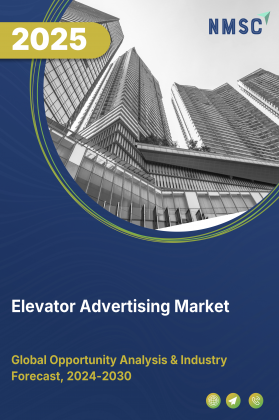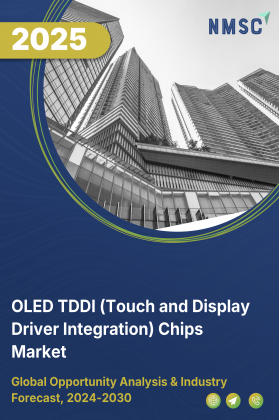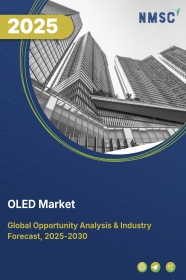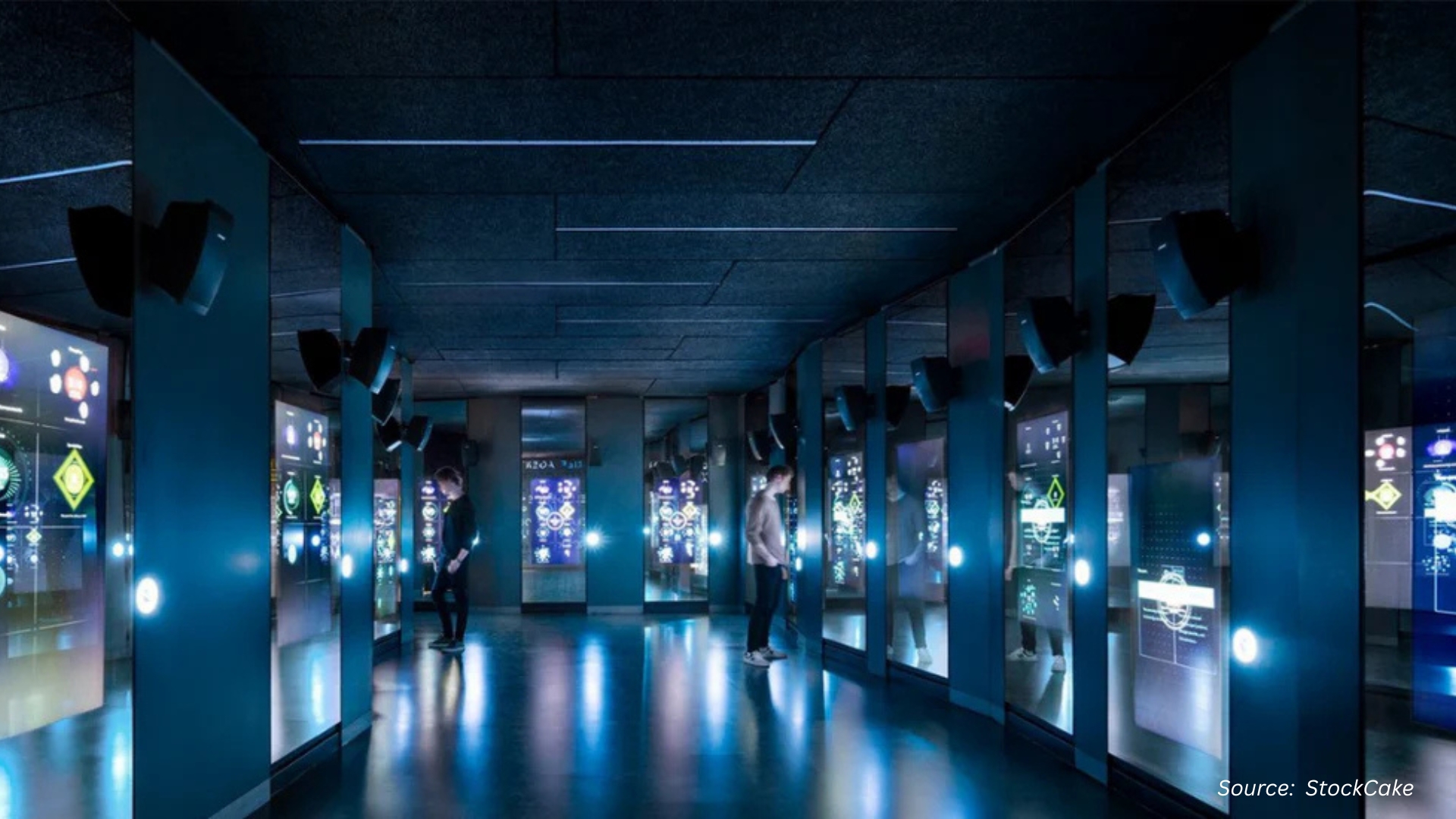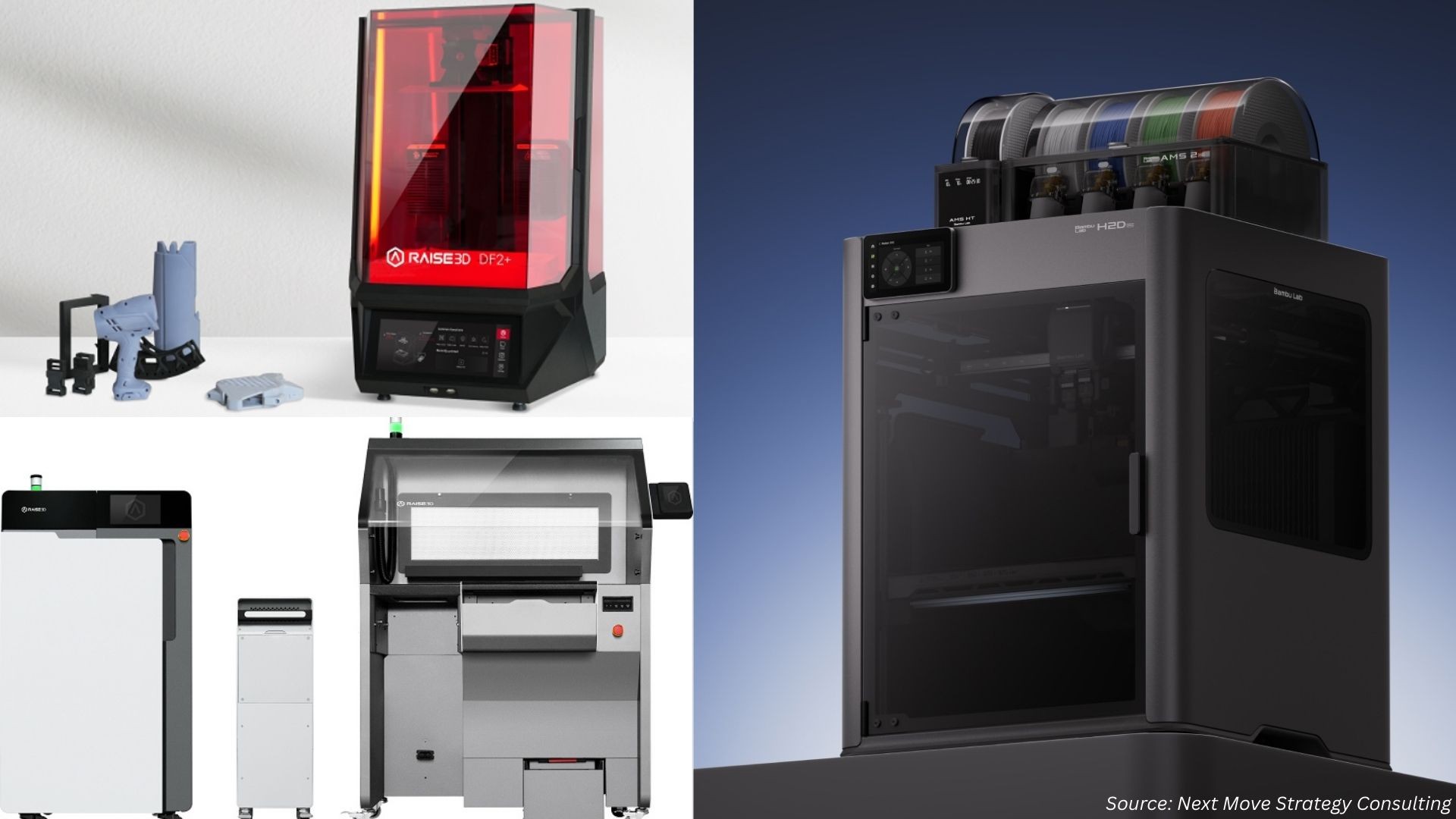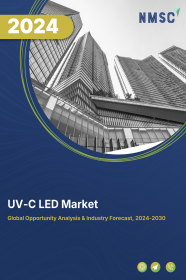
UV-C LED Market by Technology (UV-A, UV-B, and UV-C), by Power Output (Below 1W, 1W-5W, above 5W), by Application (Surface Disinfection, Air Disinfection and Water Disinfection), and by End User (Industrial, Residential, and Commercial) - Global Opportunity Analysis and Industry Forecast 2024-2030
Market Definition
The UV-C LED Market size was valued at USD 619.41 million in 2023 and is predicted to reach USD 6576.18 million by 2030 with a CAGR of 40.1% from 2024-2030. UV-C LED refers to a type of light-emitting diode (LED) specifically engineered to emit ultraviolet (UV) light in the UV-C spectrum, typically ranging from 100 to 280 nanometers (nm). UV-C radiation possesses germicidal properties capable of disrupting the DNA and RNA of microorganisms such as bacteria, viruses, and mold, thereby rendering them inactive and preventing reproduction. UV-C LEDs offer advantages over traditional UV-C lamps, including smaller size, lower energy consumption, longer lifespan, and reduced environmental impact. These LEDs find applications in various sectors such as water and air purification, surface sterilization, medical disinfection, and industrial processes where effective and efficient germicidal treatment is required.
Market Dynamics and Trends
The global UV-C-LED market is experiencing significant growth driven the increased adoption of environmentally friendly LED technology, coupled with the growing utilization of ultraviolet curing systems in industries including printing and packaging, automotive and electronics. This trend is bolstering the demand for UV-C LEDs, particularly as these industries seek more sustainable and energy-efficient solutions. Additionally, the development of more efficient and cost-effective UV-C LED technology has expanded its accessibility for commercial and industrial applications. This increased affordability and improved performance are key contributors to the market's growth trajectory. For instance, in January 2023, Nichia Corporation, a leading global LED manufacturer, commenced mass production of a new high radiant flux UV-C LED suitable for industrial water and air applications. Such advancements in UV-C LED technology underscore its growing importance in addressing critical challenges related to sanitation and environmental compliance.
Moreover, the implementation of stricter regulations and standards for water and air quality is acting as a significant driver for the adoption of UV-C LED technology across various industries. Sectors such as healthcare, food and beverage, and pharmaceuticals are increasingly turning to UV-C LEDs to meet these stringent requirements, further bolstering market growth.
However, despite advancements, UV-C LED technology still faces technical challenges such as limited UV-C output power, narrow wavelength range, and variations in LED performance. These challenges may hinder its suitability for certain applications or industries. This is expected to restrain the market growth during the forecast period. On the contrary, the integration of UV-C LED technology with smart technology, such as the Internet of Things (IoT), enables remote monitoring and control, enhancing the efficiency and effectiveness of disinfection solutions. This factor is expected to create ample growth opportunities for the market in future.
Market Segmentation and Scope of Study
The global UV-C LED market is segmented on the basis of technology, power output, application, end user and geography. Based on technology, the market is classified into UV-A, UV-B, and UV-C. Based on power output, the market is segmented into Below 1W, 1W-5W, above 5W. Based on application, the market is categorized into surface disinfection, air disinfection and water disinfection. Based on end user, the market is divided into industrial, residential and commercial. Geographical breakdown and analysis of each of the aforesaid classification includes regions comprising of North America, Europe, Asia-Pacific, and RoW.
Geographical Analysis
Asia-Pacific holds the lion share of global UV-C LED market at present and is expected to continue its dominance throughout the forecast period. This is attributed to the notable increase in cases of water-borne diseases, particularly in emerging countries across Asia. UV radiation's potent germicidal ability to disinfect water contaminated with protozoans, bacteria, and viruses is driving demand for UV-C LED technology to address water safety concerns effectively.
Moreover, the market is experiencing stimulation from the rising adoption of advanced technologies for treating industrial liquid waste and wastewater. Leading companies are offering high-performance UV-C LED solutions tailored for large-volume applications, such as industrial water treatment and municipal drinking water purification. These solutions not only improve water quality but also contribute to environmental sustainability by reducing the use of harmful chemicals.
Additionally, factors such as government policies, rapid industrialization, and a strong focus on efficient water and wastewater treatment are further accelerating market growth in the Asia Pacific region. Government initiatives aimed at promoting sustainable development and environmental protection are creating a conducive environment for the adoption of UV-C LED technology across various sectors.A significant milestone occurred in October 2022 when Asahi Kasei, the parent company of Crystal IS Inc., showcased the application of UV-C LED technology for achieving higher disinfection efficiency in water treatment compared to conventional mercury lamp systems. This demonstration underscores the significant advancements made by Crystal IS and Asahi Kasei in UV-C LED technology, highlighting their crucial role in advancing society's sustainability goals and moving towards a mercury-free world. These factors collectively contribute to the market's expansion, offering effective and sustainable solutions for water treatment challenges in the region.
North America is anticipated to witness a swift growth in the market owing to the ongoing research and development efforts that have led to notable progress, enhancing the efficiency, reliability, and affordability of UV-C LEDs. These advancements have expanded the potential applications of UV-C LEDs across various industries, accelerating their adoption. For instance, a collaborative research initiative announced in February 2023 by Johnson Controls, PURO Lighting, and Ushio America Inc. aims to explore the efficacy and safety of filtered far UV-C disinfection technology. This research endeavor seeks to validate and bring to market disinfection devices suitable for deployment in schools, hospitals, and other relevant settings.
Additionally, increasing concerns about water and air quality in North America are driving demand for effective disinfection solutions. With heightened awareness of the importance of clean water and air, UV-C LEDs are gaining traction due to their chemical-free and environmentally friendly approach to sterilization. This appeal extends to both consumers and businesses seeking sustainable solutions. For example, Nexnord Inc. introduced an advanced UVC LED light in January 2021, capable of eliminating 99.99% of viruses and bacteria. Notably, this technology also targets mold and mites, presenting benefits for indoor cultivation while significantly reducing energy costs. As awareness continues to increase and technology evolves, UV-C LEDs are positioned to play a pivotal role in addressing disinfection needs across various sectors in the region.
Competitive Landscape
The UV-C LED market comprises of various market players such as OSRAM, Crystal IS, Inc., Converge Ver Inc., Koninklijke Philips N.V., LG Electronics Inc., Nichia Corporation, Adibot, Heraeus Group, HexaTech and Seoul Viosys. These market players are adopting various production as well as launch of business across various regions to maintain their dominance in the market. For instance, in January 2023, Nichia introduced a high radiant flux UV-C LED suitable for industrial water and air applications. With a size of just 3.5mm x 3.5mm, this flux density and efficiency is unmatched in the industry today, eliminating any wavelength inefficiencies of germicidal effectiveness. In addition, in February 2021, Crystal IS launched Klaran LA, the newest addition to its industry-leading Germicidal UV-C LED product line that represents a breakthrough in higher performance, and extended lifetime.
Key Benefits
-
The UV-C LED market report provides the quantitative analysis of the current market and estimations through 2024-2030 that assists in identifying the prevailing market opportunities to capitalize on.
-
The study comprises a deep dive analysis of the UV-C LED market trend including the current and future trends for depicting the prevalent investment pockets in the market.
-
The information related to key drivers, restraints and opportunities and their impact on the UV-C LED market is provided in the report.
-
The competitive analysis of the market players along with their market share in the UV-C LED market.
-
The SWOT analysis and Porters Five Forces model is elaborated in the study.
-
Value chain analysis in the market study provides a clear picture of the stakeholders’ roles.
Key Market Segments
By Technology
-
UV-A
-
UV-B
-
UV-C
By Power Output
-
Below 1W
-
1W-5W
-
Above 5W
By Application
-
Surface Disinfection
-
Air Disinfection
-
Water Disinfection
By End User
-
Industrial
-
Residential
-
Commercial
By Region
-
North America
-
The U.S.
-
Canada
-
Mexico
-
-
Europe
-
The U.K.
-
Germany
-
France
-
Italy
-
Spain
-
Denmark
-
Netherlands
-
Finland
-
Sweden
-
Norway
-
Russia
-
Rest of Europe
-
-
Asia-Pacific
-
China
-
Japan
-
India
-
South Korea
-
Australia
-
Indonesia
-
Singapore
-
Taiwan
-
Thailand
-
Rest of Asia-Pacific
-
-
Rest of the World (RoW)
-
Latin America
-
Middle East
-
Africa
-
REPORT SCOPE AND SEGMENTATION:
|
Parameters |
Details |
|
Market Size in 2023 |
USD 619.41 Million |
|
Revenue Forecast in 2030 |
USD 6576.18 Million |
|
Growth Rate |
CAGR of 40.1% from 2024 to 2030 |
|
Analysis Period |
2023–2030 |
|
Base Year Considered |
2023 |
|
Forecast Period |
2024–2030 |
|
Market Size Estimation |
Million (USD) |
|
Growth Factors |
|
|
Countries Covered |
28 |
|
Companies Profiled |
10 |
|
Market Share |
Available for 10 companies |
|
Customization Scope |
Free customization (equivalent to up to 80 working hours of analysts) after purchase. Addition or alteration to country, regional, and segment scope. |
|
Pricing and Purchase Options |
Avail customized purchase options to meet your exact research needs. |
KEY PLAYERS
-
OSRAM
-
Crystal IS, Inc.
-
Converge Ver Inc.
-
Koninklijke Philips N.V.
-
LG Electronics Inc.
-
Nichia Corporation
-
Adibot
-
Heraeus Group
-
HexaTech
-
Seoul Viosys




















 Speak to Our Analyst
Speak to Our Analyst



